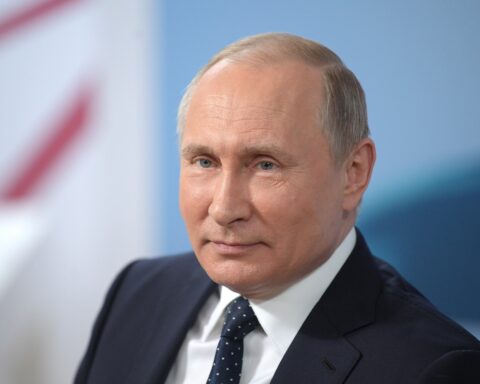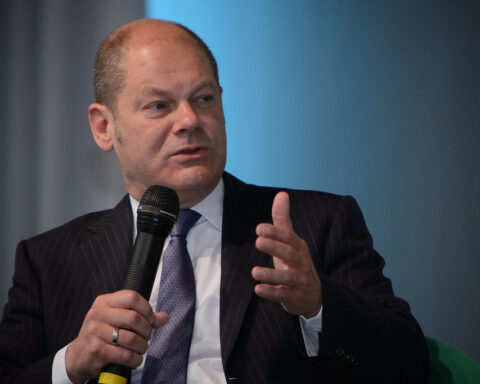Angela Merkel’s Christian Democrats face questions over their new leader and the impact of a corruption scandal involving face mask production following historic defeats in German regional elections on Sunday – just six months before a national vote.
Merkel’s successor as chancellor is due to be chosen by the voters in September and the CDU’s worst ever results in the states of Baden-Württemberg and Rhineland-Palatinate, which were once considered its strongholds, have increased pressure on the party to work out how it can regain the confidence of the public in time.
In the wealthy southern state of Baden-Württemberg, the CDU’s result slumped to just 24%, way behind its main rival, the pro-environmental Greens, who made gains to secure 33%. The CDU had previously ruled the state from 1953 for almost 58 years.
In Rhineland-Palatinate, south-western Germany, the CDU vote fell by more than four points to 28%, with the centre-left Social Democrats (SPD) securing victory with 36%.
The CDU has had to face up to the fact that a corruption scandal involving alleged kickbacks over face mask procurement, which led to the resignation of three MPs within a week, in the run-up to the votes, has seriously damaged its image. On Monday it hinted at plans it would refresh an existing “codex” under which MPs have to make public their allegiances to business and any other interest groups.
A sluggish nationwide vaccine rollout, which has been largely blamed on Merkel and her health minister Jens Spahn’s decision to allow the European commission to take control of orders, is also thought to have contributed to voter distrust. So far only about 3.3% of Germans have received the full vaccination, and 7.4% have had the first jab. These figures are far lower than those for the US, where 11% have been fully vaccinated and 21% have had the first injection, and Britain, where only 2.4% have been fully vaccinated, but 36% have had their first jab.
The fact that the CDU has returned such historically bad results, which have plunged the party into its worst crisis for years two months after electing a new party leader, Armin Laschet, has raised serious questions as to whether he is the right candidate to take it forward.
Commentators on Monday said the lack of the so-called “Merkel bonus” the party enjoyed for years, owing to the popularity of the chancellor, who will not stand again in September, had also had an impact on the result.
Markus Söder, the head of the CDU’s sister party, the Christian Social Union, the leader of Bavaria and the federal interior minister, called the results a “heavy strike at the heart of the Union”, blaming in large part the government’s strategy over the coronavirus, including the vaccination programme and a prolonged lockdown.
“The election results demonstrated scepticism towards the management of the crisis,” he said.
Basking in their party’s results, the co-leaders of the Greens, and potential candidates for chancellor, Annalena Baerbock and Robert Habeck, said voters had demonstrated their trust in the Greens to govern and said that the pandemic had contributed to the party’s boost by highlighting deficits in governance.
“Many people have given their all during the pandemic,” Baerbock said at a press conference in Berlin. “They expected the government would do the same but they are disappointed … that’s what the election results show.”
She said the Greens’ result in Baden-Württemberg in particular showed that people wanted a different sort of politics. It was time, she said, to shake up the country, arguing that many opportunities to modernise Europe’s largest economy had been ignored, citing in particular the need to update its often slow and clunky day-to-day administration processes.
“During the pandemic we’ve seen how the health authorities send faxes back and forth to each other,” she said, adding that the “make do and mend” approach had to change.
Sunday’s state elections kicked off what has been labelled “superwahljahr” or “super election year”, to include further votes in the state of Saxony-Anhalt in June, Lower Saxony and Berlin in September and culminating in the federal election on 26 September, together with elections in the states of Mecklenburg-Vorpommern and Thuringia on the same day.
In both Baden-Württemberg and Rhineland-Palatinate, the Greens, SPD, and the pro-business Free Democrats (FDP) are potentially in a position to forge “traffic light” alliances – so-called because of the parties’ colours – which would leave the CDU out in the cold. If managed successfully on a state level, it makes the constellation more likely on a national level.






